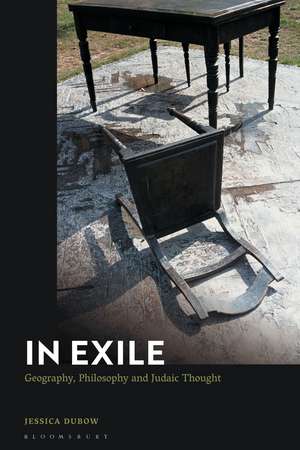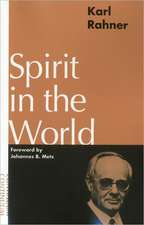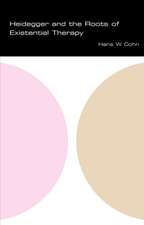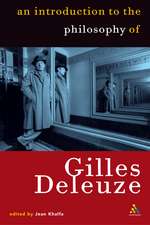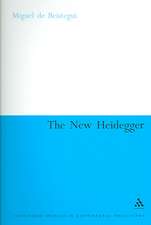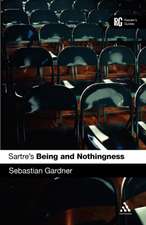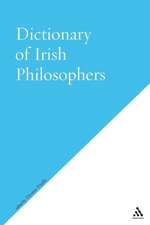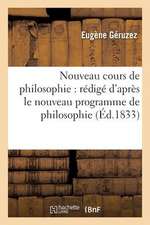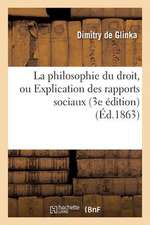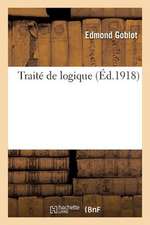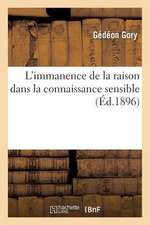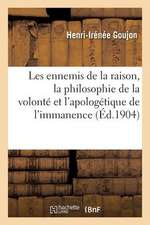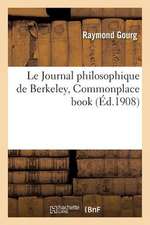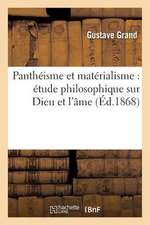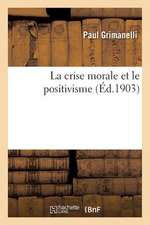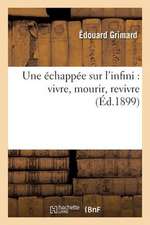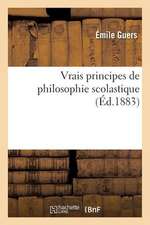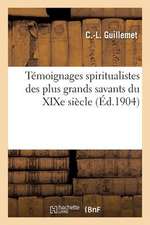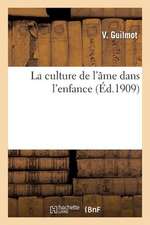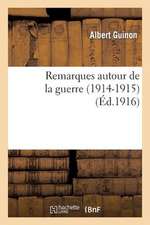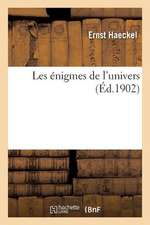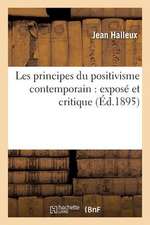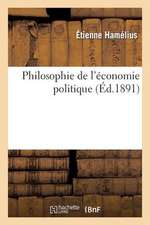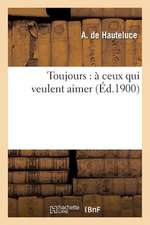In Exile: Geography, Philosophy and Judaic Thought
Autor Jessica Dubowen Limba Engleză Hardback – 11 noi 2020
| Toate formatele și edițiile | Preț | Express |
|---|---|---|
| Paperback (1) | 197.77 lei 6-8 săpt. | |
| Bloomsbury Publishing – 18 mai 2022 | 197.77 lei 6-8 săpt. | |
| Hardback (1) | 598.28 lei 6-8 săpt. | |
| Bloomsbury Publishing – 11 noi 2020 | 598.28 lei 6-8 săpt. |
Preț: 598.28 lei
Preț vechi: 765.05 lei
-22% Nou
Puncte Express: 897
Preț estimativ în valută:
114.48€ • 119.85$ • 94.73£
114.48€ • 119.85$ • 94.73£
Carte tipărită la comandă
Livrare economică 05-19 aprilie
Preluare comenzi: 021 569.72.76
Specificații
ISBN-13: 9781350154254
ISBN-10: 1350154253
Pagini: 240
Dimensiuni: 156 x 234 mm
Greutate: 0.51 kg
Editura: Bloomsbury Publishing
Colecția Bloomsbury Academic
Locul publicării:London, United Kingdom
ISBN-10: 1350154253
Pagini: 240
Dimensiuni: 156 x 234 mm
Greutate: 0.51 kg
Editura: Bloomsbury Publishing
Colecția Bloomsbury Academic
Locul publicării:London, United Kingdom
Caracteristici
Book makes a new argument for understanding exile as not just as a geographic and historical predicament, but as the (pre)condition of radical critique.
Notă biografică
Jessica Dubow is Reader in Cultural Geography at the University of Sheffield, UK. She is an interdisciplinary scholar and the author of Settling the Self: Colonial Space, Colonial Identity and the South African Landscape (2009). She has also published in numerous leading journals including: Critical Inquiry, New German Critique, Art History, The Journal of Visual Culture, Comparative Literature and Parallax .
Cuprins
Introduction: Exile at the Origin Chapter 1 - "A Patch of Ground Between Four Tent Pegs"Chapter 2 - The Second Commandment in the Second EmpireChapter 3 - Liberal Pluralism and the Mourning Work of AssimilationChapter 4 - 'Wherever you go you will be a polis": Hannah Arendt via Rahel VarnhagenChapter 5 - Posthumous Place: W.G. Sebald and the Problem of Landscape Epilogue: Exile as Source and Resource
Recenzii
In Exile is an eloquently written book, even as it covers an impressive amount of dense literature ... [it] is a strong and impressive intellectual exercise, which invites readers to take its findings and mount a weighty political challenge.
This is a brilliant and profound study of the spatial basis of Judaic thought. Thanks to a constellatory investigation of thinkers such as Franz Rosenzweig, Walter Benjamin, Hannah Arendt and Isaiah Berlin, she shows how exile produces a form of critical surplus, a distinct form of critical consciousness.
From a cultural geographer's appreciation for landscape, emplacement, and subjectivity, Jessica Dubow brilliantly explores the valencies of exile, rootedness, territoriality, and belonging. With eloquence and erudition, she draws on the deepest knowledge of the history of art and aesthetics, literary theory, history of philosophy, and the widest possibilities of Frankfurt-inclined critical theory.
In beautifully evocative prose, the author offers the fresh voice of a cultural geographer to the analysis of secular Jewish thought. In doing so, Dubow gifts us with a genuinely novel approach to the dialectics of secularism and theology. This book opens our understanding of the space that exile can carve out for intellectual creativity.
This is a brilliant and profound study of the spatial basis of Judaic thought. Thanks to a constellatory investigation of thinkers such as Franz Rosenzweig, Walter Benjamin, Hannah Arendt and Isaiah Berlin, she shows how exile produces a form of critical surplus, a distinct form of critical consciousness.
From a cultural geographer's appreciation for landscape, emplacement, and subjectivity, Jessica Dubow brilliantly explores the valencies of exile, rootedness, territoriality, and belonging. With eloquence and erudition, she draws on the deepest knowledge of the history of art and aesthetics, literary theory, history of philosophy, and the widest possibilities of Frankfurt-inclined critical theory.
In beautifully evocative prose, the author offers the fresh voice of a cultural geographer to the analysis of secular Jewish thought. In doing so, Dubow gifts us with a genuinely novel approach to the dialectics of secularism and theology. This book opens our understanding of the space that exile can carve out for intellectual creativity.
